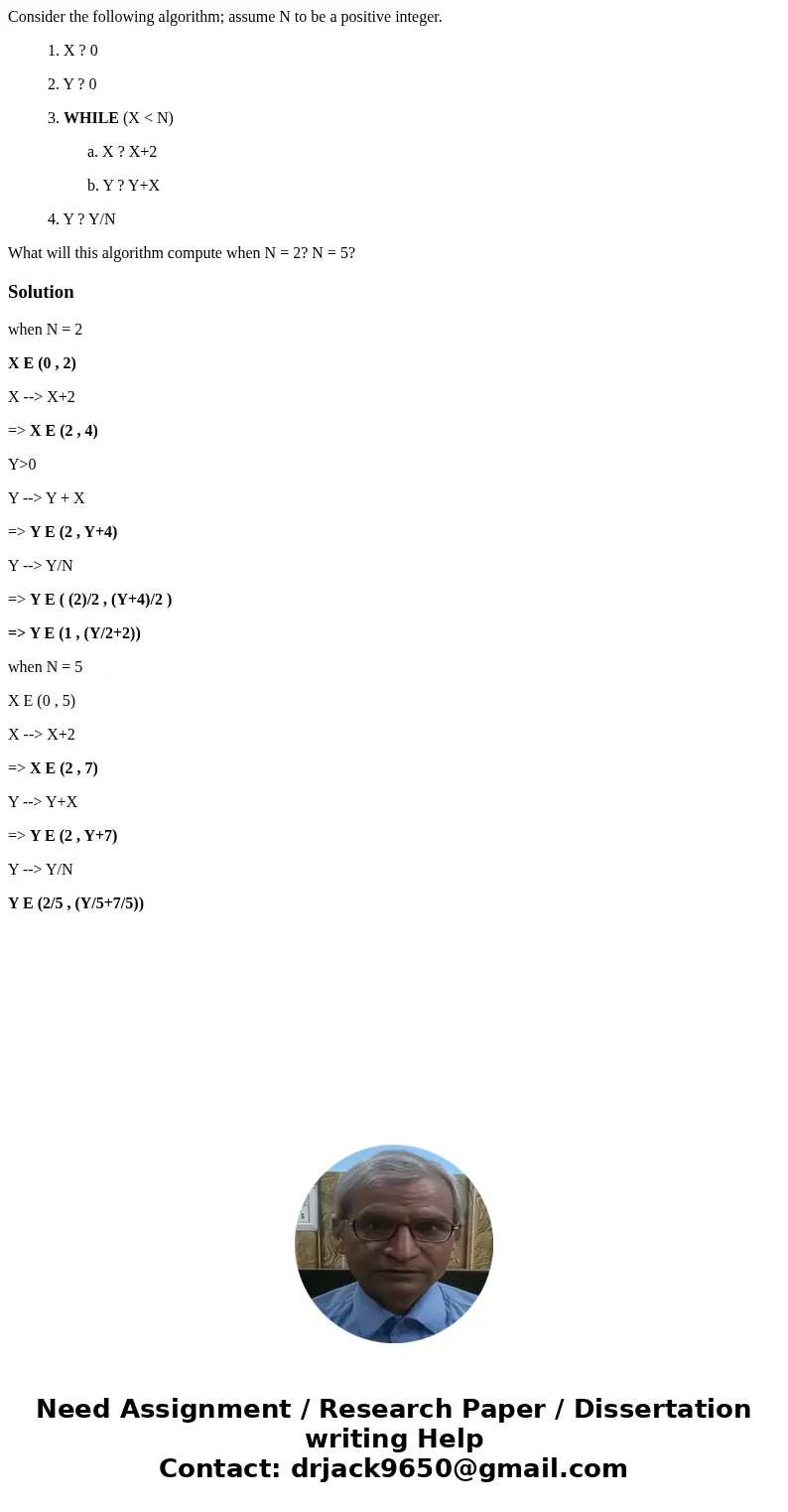Consider the following algorithm assume N to be a positive i
Consider the following algorithm; assume N to be a positive integer.
1. X ? 0
2. Y ? 0
3. WHILE (X < N)
a. X ? X+2
b. Y ? Y+X
4. Y ? Y/N
What will this algorithm compute when N = 2? N = 5?
Solution
when N = 2
X E (0 , 2)
X --> X+2
=> X E (2 , 4)
Y>0
Y --> Y + X
=> Y E (2 , Y+4)
Y --> Y/N
=> Y E ( (2)/2 , (Y+4)/2 )
=> Y E (1 , (Y/2+2))
when N = 5
X E (0 , 5)
X --> X+2
=> X E (2 , 7)
Y --> Y+X
=> Y E (2 , Y+7)
Y --> Y/N
Y E (2/5 , (Y/5+7/5))

 Homework Sourse
Homework Sourse